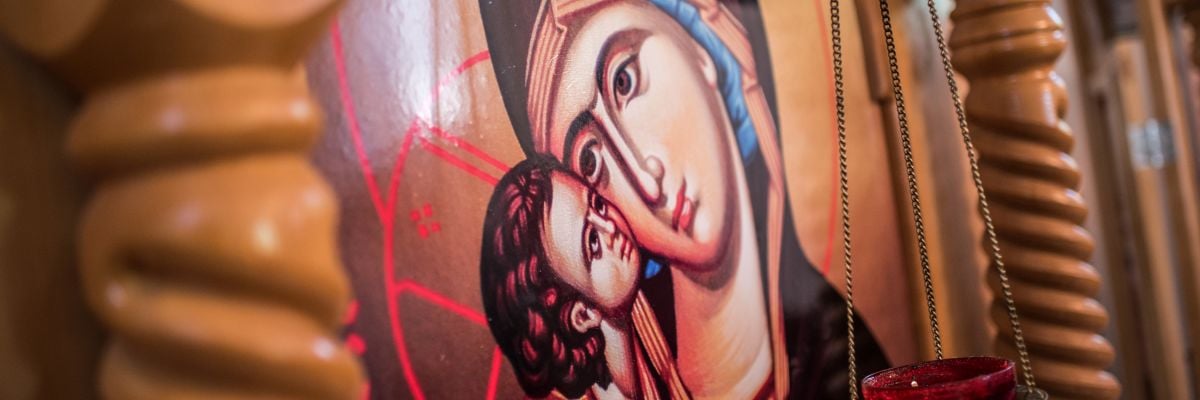The Council of Ephesus in AD 431, I say again,
the Council of Ephesus in AD 431, decreed that Mary is the
Theotokos because her son Jesus is both God and man: one divine person with two natures (divine and human).
The title of Mother of God (Greek: Μήτηρ (του) Θεοῦ) or
God Bearer, is most often used in English, largely due to the lack of a satisfactory equivalent of the Greek τόκος. Because of that the title is often left untranslated, and she is called "Theotokos".
Mary "bore" God (Jesus) in her womb so she is the God Bearer,
Mother of God.
This is the belief of almost all Christians, Catholic and Orthodox. Only a tiny fringe reject it.
Read:
Although Mary is the Mother of God, she is not his mother in the sense that she is older than God or the source of her Son’s divinity, for she is neither. Rather, we say that she is the Mother of God in the sense that she carried in her womb a divine person—Jesus Christ, God “in the flesh” (2 John 7, cf. John 1:14)—and in the sense that she contributed the genetic matter to the human form God took in Jesus Christ.
To avoid this conclusion, Fundamentalists often assert that Mary did not carry God in her womb, but only carried Christ’s human nature. This assertion reinvents a heresy from the fifth century known as Nestorianism, which runs aground on the fact that a mother does not merely carry the human nature of her child in her womb. Rather, she carries the person of her child. Women do not give birth to human natures; they give birth to persons. Mary thus carried and gave birth to the person of Jesus Christ, and the person she gave birth to was God.
The Nestorian claim that Mary did not give birth to the unified person of Jesus Christ attempts to separate Christ’s human nature from his divine nature, creating two separate and distinct persons—one divine and one human—united in a loose affiliation. It is therefore a Christological heresy, which even the Protestant Reformers recognized. Both Martin Luther and John Calvin insisted on Mary’s divine maternity. In fact, it even appears that Nestorius himself may not have believed the heresy named after him. Further, the “Nestorian” church has now signed a joint declaration on Christology with the Catholic Church and recognizes Mary’s divine maternity, just as other Christians do.
Since denying that Mary is God’s mother implies doubt about Jesus’ divinity, it is clear why Christians (until recent times) have been unanimous in proclaiming Mary as Mother of God.
The Church Fathers, of course, agreed, and the following passages witness to their lively recognition of the sacred truth and great gift of divine maternity that was bestowed upon Mary.
Mary is Jesus' mother ONLY in regards to His HUMANITY
That is an old heresy which introduces a duality into Jesus Christ.

